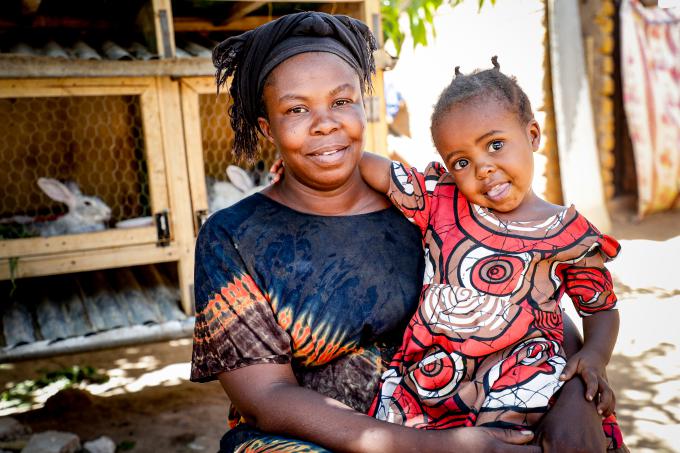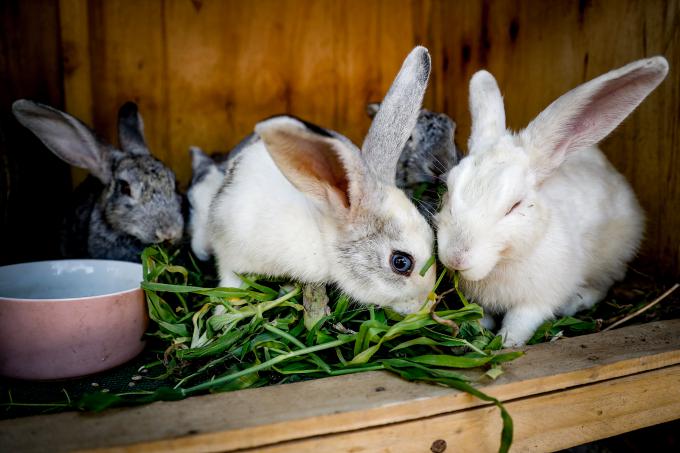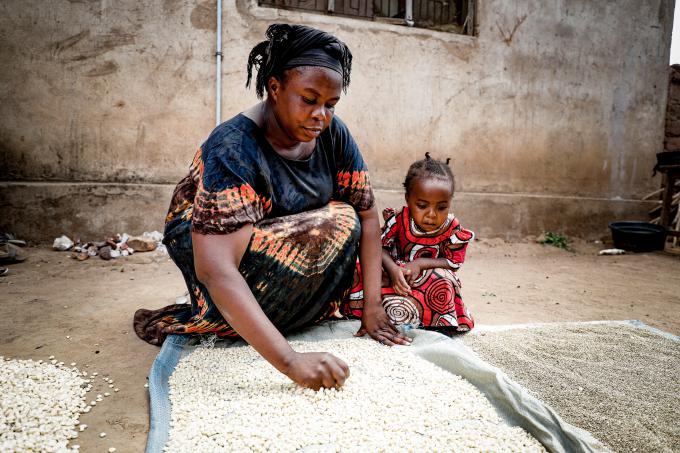AMASA: LISHE ENDELEVU HAS CHANGED OUR LIVES FOR THE BETTER

Amasa and 20 fellow community members from the Muungano group, residents of Hombolo Makulu Village in Dodoma District and beneficiaries of the 'USAID Lishe Endelevu' activity, have begun to enjoy a healthy life and a stable economy by raising rabbits, which provides them with nutrition and income.
The 'USAID Lishe Endelevu' Activity promotes rabbit farming as one of its strategies to increase the production and availability of a variety of nutritious foods in the community. 20 community members, including rabbit model farmer Amasa, have benefited from the effort, which now assures that they have access to nutritious meat.
Before the USAID Lishe Endelevu Activity, her village's understanding of nutrition knowledge and rabbit keeping was low. According to Amasa, no one knew if keeping rabbits could provide them with meat to eat and sell in order to make more money and improve their health.
"Previously, community members, particularly mothers and children, were unable to access diverse animal source foods such as rabbit meat to meet their nutrition needs." and this was because of poor knowledge of nutrition-related issues coupled with poor income for accessing diversified nutritional foods," said Amasa.

Amasa and her colleagues were identified and trained on rabbit-keeping by Lishe Endelevu livelihood and local government staff across all the 4 regions where the activity is implemented. Some of the lessons they trained on include how to breed better rabbits, how to care for and handle rabbits, how to feed and care for them, and how to build quality for rabbits.
They were also taught the value of nutritious food for pregnant women, nursing mothers, and children under the age of two. In addition, the training was accompanied by proper practical food preparation and WASH education.
After the training, she was given three rabbits—two females and one male, which she cared for as directed by the extension experts and eventually succeeded in producing so many rabbits that each member of her group received at least five rabbits.
"Until now, each member has been able to get five rabbits that we bred here at home in this model farm," she explained.

Amasa kept rearing rabbits until she had between 70 and 80 rabbits. At this point she had no choice but to start selling them to manage the overpopulation in the cage. Each rabbit was sold at TZS 15,000 ($7)-2,000 ($8) on average and the earnings were used to meet other family needs, including purchasing of foods for family, meeting her two children school needs and completing the construction of her small mud house close to her parents’ home.
So far USAID Lishe Endelevu Activity has provided production assets, including rabbits, to over 2,533 beneficiaries. The initiative has helped the government in meeting its goal of increasing meat production and consumption from 15 to 25 kg per person per year by 2021.
 Tanzania
Tanzania